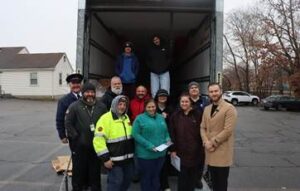LITTLE ROCK, Ark. — Arkansas State Police (ASP) say that speeding violations on the state’s roadways continue to rise and, as a result, troopers plan to fan out across the state as part of the new “Obey the Sign or Pay the Fine” campaign.
The two-week crackdown directed at speeders begins Monday, July 18, according to a news release.
“It’s an acknowledged fact, as a motor vehicle speed increases, so do the risks of injuries and deaths on roadways,” ASP Colonel Bill Bryant, director of the ASP and the Governor’s Highway Safety Representative, said. “A driver exceeding the posted speed limit is less likely to avoid a hazardous object in the road, safely steer away from another vehicle or negotiate an unfamiliar curve or highway exit.”
Bryant said that speeders put themselves and others at risk, pointing to the latest data from the National Highway Traffic Safety Administration (NHTSA) to drive home his point.
During 2020, there were 11,258 people killed in speeding-related crashes, accounting for 29% of all fatal crashes in the United States, according to the NHTSA.
“Much like impaired driving, speeding is a selfish choice that can have deadly consequences for the driver, vehicle passengers, other drivers and pedestrians,” the news release stated. “Speeding not only affects a driver’s ability to steer properly, but also affects stopping distances. Even the safest cars equipped with the newest safety technology have limitations in the advances made to reduce the odds of a crash.”
According to NHTSA, local roads are the most dangerous for speeders. The 2020 data reports that 87% of all speeding-related traffic fatalities on U.S. roads occurred on non-interstate roadways.
NHTSA considers a crash to be speeding-related if a driver was charged with exceeding the posted speed limit or driving too fast for conditions.
“During the upcoming special speed enforcement operation, state troopers and other law enforcement officers won’t be accepting excuses, the posted speed limit is the law,” Bryant said. “Our goal will always be to save lives.”
For more information on the “Obey the Sign, or Pay the Fine” mobilization, visit www.trafficsafetymarketing.gov or contact the Arkansas Highway Safety Office at (501) 618-8136. Additionally, motorists are encouraged to learn more about Arkansas’ ongoing Toward Zero Deaths campaign to eliminate preventable traffic fatalities at www.TZDarkansas.org .
The Trucker News Staff produces engaging content for not only TheTrucker.com, but also The Trucker Newspaper, which has been serving the trucking industry for more than 30 years. With a focus on drivers, the Trucker News Staff aims to provide relevant, objective content pertaining to the trucking segment of the transportation industry. The Trucker News Staff is based in Little Rock, Arkansas.















